Mainland youth: Hong Kong a reassuring place with good opportunities
Hong Konger freelance writer Thomas Chan speaks with young mainland Chinese who have chosen to seek their futures in Hong Kong. Aside from push factors from the mainland or the West, many of them think Hong Kong has positive attributes of its own that makes it an appealing choice.
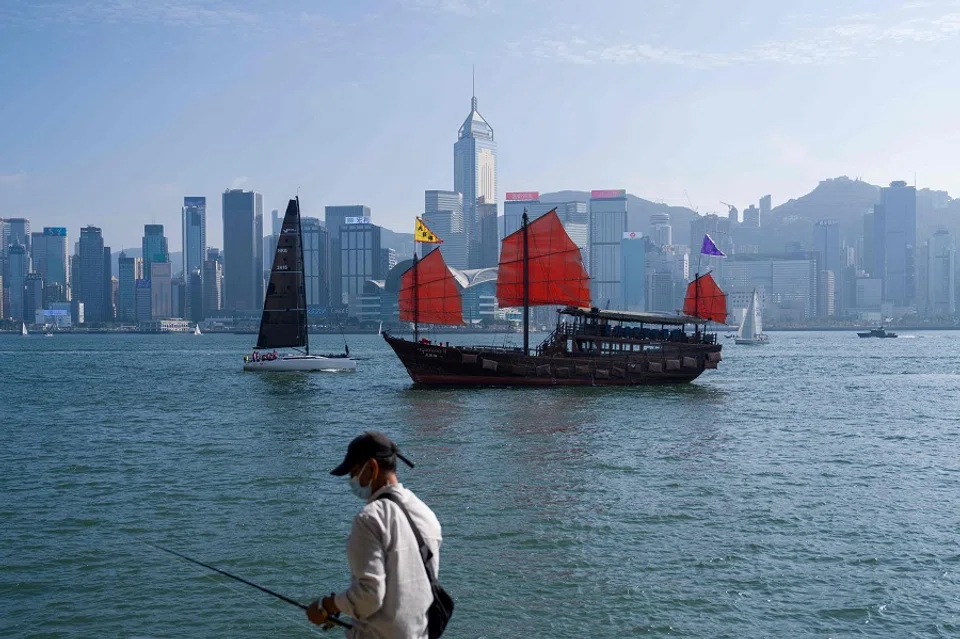
Anna* came to Hong Kong in August 2022 after her undergraduate studies in Guangzhou. She decided to pursue a postgraduate degree in journalism at the University of Hong Kong.
Though she once prioritised the US and Europe as her destination, she settled for Hong Kong because of the fraught relationships between China and the West and the desire to stay close enough with her parents, who still reside in the mainland.
Anna is one of the thousands of mainland students who have chosen to stay in Hong Kong after or despite the recent turbulence.
They are the lucky ones: Anna was told that she and her friends were chosen from hundreds of applicants. For the 2022 intake, the University of Hong Kong alone received over 15,000 mainland Chinese undergraduate applications through the National College Entrance Examination (gaokao) or other means for 300 spots. Other institutions like Baptist University and Lingnan University have also seen similar upticks. Clearly, they are ramping up their intake quota for mainlanders.
Over 113,000 residents left the city in 2022, marking the largest year-on-year drop since records began in 1961.
A southward exodus
Since the pro-democracy protests ended in 2020, Hong Kong has experienced an apparent population decline. Over 113,000 residents left the city in 2022, marking the largest year-on-year drop since records began in 1961. This emigration trend became evident after the 2019 protests and the city's harsh Covid lockdowns.
Many among those who left were young professionals and university students. The 2021/2022 academic year saw the largest university dropout rate, with emigration being a key factor.
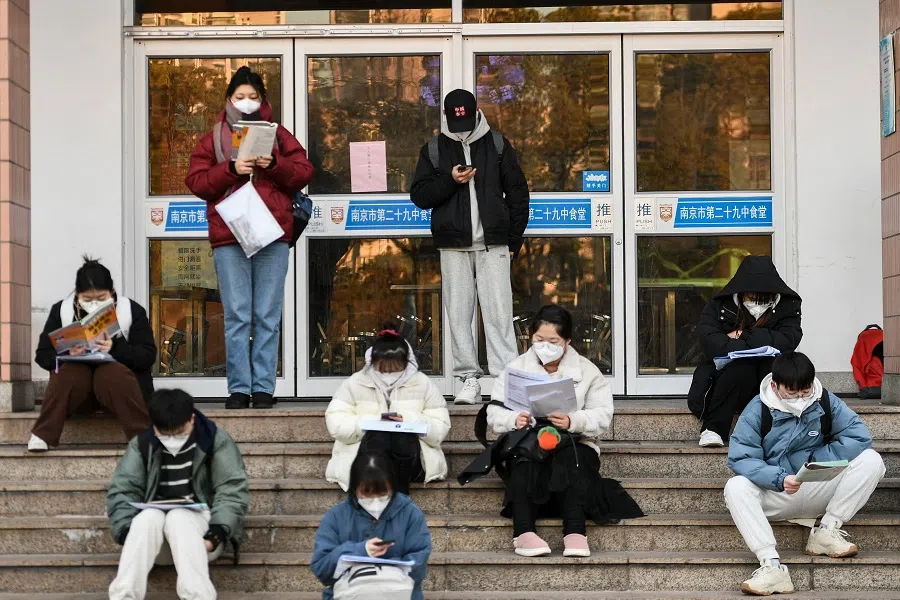
The gap has been filled by students and young expatriates from mainland China hoping for better prospects. In June 2022, then Secretary of Education Kevin Yeung said in a Legislative Council hearing that the number of non-local students in public-funded university programmes rose by 8.2% between 2019 and 2022, from 12,249 to 13,254. Out of the extra intake, 65% came from the mainland. Public-funded non-local research postgraduate students also rose from 100 to 124 in the past three years. Mainland students took up over 90% of the overall headcount.
He said the city's tertiary institutions were keen to "grasp opportunities posed by the Greater Bay Area" and help China nurture more talent.
Pro-Beijing lobby groups quickly welcomed the influx of mainland students, seeing it as a sign of confidence from China after the protest, and called for welcoming mainland students in all education stages. State media Wen Wei Po quoted Chief Executive John Lee as saying that Hong Kong was ready to accommodate Beijing's plans in ushering further integration with Beijing's education initiatives. He said the city's tertiary institutions were keen to "grasp opportunities posed by the Greater Bay Area" and help China nurture more talent.
Anna said she was unaware of the Hong Kong government's schemes to welcome her and her compatriots. Rather, she had another motivation.
The 'run philosophy'
In the past year, the term "run philosophy" (润学) - an online term referring to an exodus from China to other developed countries or territories - has become extremely popular on Chinese social media as youngsters flocked to "run" abroad from the country's stringent Covid lockdowns, social controls and hyper-intense competition.
With its proximity, Western-style education and similar culture, Hong Kong became a favoured spot for these "runners". In 2020, 8% of mainland students identified Hong Kong as their ideal place to study. This number jumped to 19% in 2022, surpassing traditionally-popular destinations like Australia, Canada and Singapore.
... many of her classmates, like her, also came to Hong Kong to 'run' from the suffocating atmosphere in the mainland".
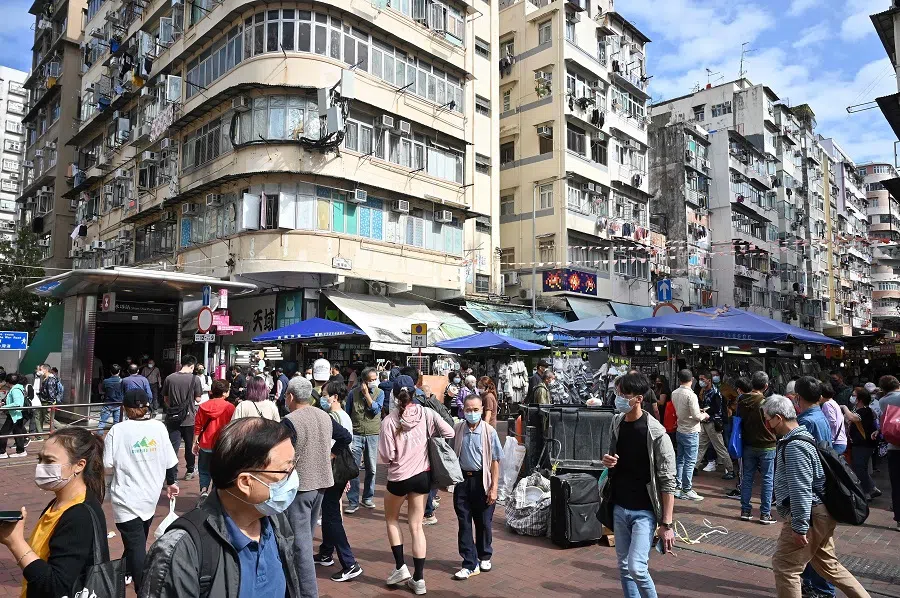
Before coming to Hong Kong, Anna originally searched for opportunities abroad but was turned off by the increased difficulties. Nonetheless, the student viewed "escaping the mainland" as a main goal. She said many of her classmates, like her, also came to Hong Kong to 'run' from the suffocating atmosphere in the mainland".
To her, this move was escaping a Chinese education system that was oppressive and barred people from thinking critically.
Besides the relatively relaxed learning environment, Hong Kong is still regarded as a place that can facilitate freer discussions.
Claudia*, a 25-year-old postgraduate student from Shenzhen who came to Hong Kong in 2016, said it was common for students in Shenzhen to spend the entire day at school or tuition centres during weekdays to study for exams.
She recalled she was shocked to see her co-studying space packed with students during Lunar New Year, and holidays were times for "self-improvement" - a euphemism for improving grades. Students spend long hours studying because of the heavy workload from both schools and tuition centres.
Relative freedom
Besides the relatively relaxed learning environment, Hong Kong is still regarded as a place that can facilitate freer discussions.
Throughout history, Hong Kong has been a place that can harbour views unfavourable in the mainland - in spite of current crackdowns on opposition.
Anna said that a summer programme in the UK was a turning point for her, where she was first exposed to open discussions on politics and uncensored criticisms of the government.
Yet, current developments in the city may prompt some to worry about the city's pledge to uphold individual liberty and freedom of speech
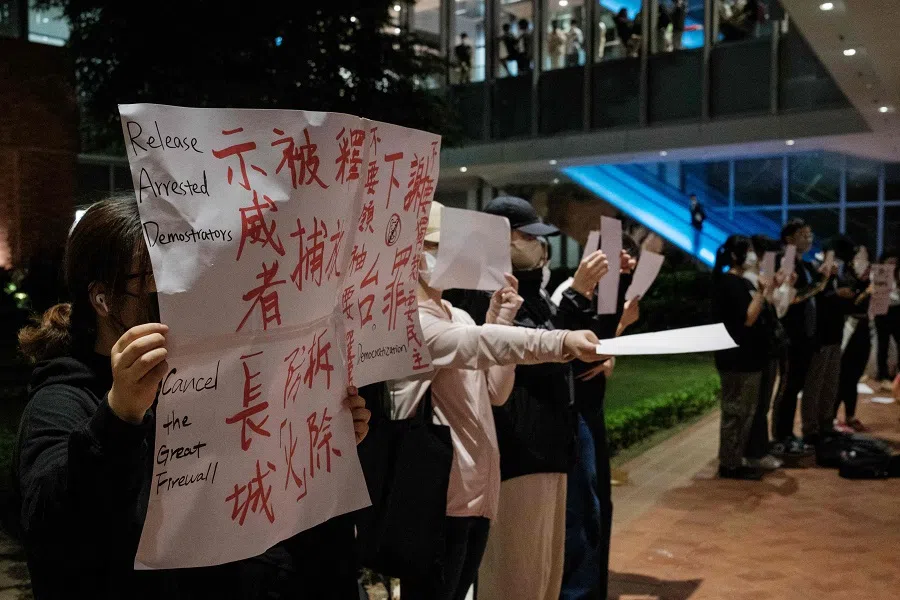
She found herself engaging in similar discussions in Hong Kong, as she was free to talk about global news and current affairs with her classmates, and even got to understand the 2019 citywide protest and debate about the recent "white paper revolution" that sparked across China.
"I was shocked," she said. "Very few in China would think that the government curbs freedom and one should strive for democracy. It took some time for me to understand."
Yet, current developments in the city may prompt some to worry about the city's pledge to uphold individual liberty and freedom of speech - qualities that have made Hong Kong unique. The once-outspoken media tycoon Jimmy Lai faces national security charges of conspiring with external forces and allegedly publishing seditious materials.
Editors from another independent media, Stand News, were also facing sedition charges for their publications before it was closed down for good in 2021. Civil society has also largely disappeared, and the city is left virtually without political opposition.
... when she moved in 2013, Hong Kong was already in vogue for mainland students, especially the top scorers, known as zhuangyuan (状元), from the gaokao system.
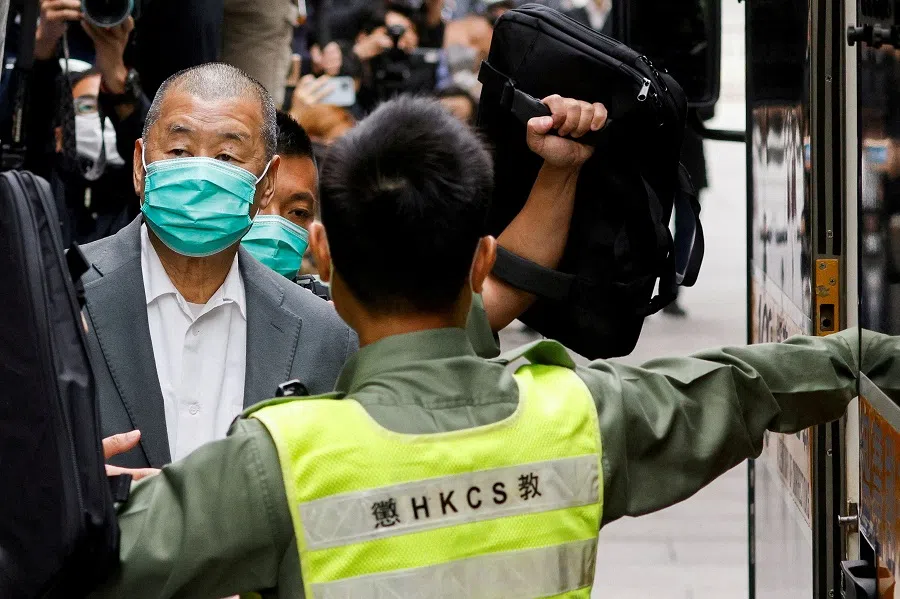
Joyce, a journalist from a second-tier city in mainland China, said her choice to study in Hong Kong was not political. When Joyce first came to Hong Kong in 2013, she was already aspiring to be a journalist. Like many other ambitious students from rural China, she saw it as an achievement to move to a first-tier Chinese city.
She recalled when she moved in 2013, Hong Kong was already in vogue for mainland students, especially the top scorers, known as zhuangyuan (状元), from the gaokao system. These young achievers saw coming to the city as a status symbol, and universities were keen to welcome them. The sense of achievement from landing in a big city, rather than politics or personal freedom, was their priority.
Joyce is now working as a journalist in mainstream Western media and has witnessed the drastic changes the city has experienced in recent years, such as the 2019 pro-democratic citywide protest and the aftermath since Beijing imposed the national security law. She lamented that while few took politics as a motivation to join the industry in her days, the atmospheres in both Hong Kong and the mainland were more liberal then. She said if she could choose again, she would even pick another career path; but in reality, life goes on.
"You can't go head-on with the status quo, so you do what you can. It is what it is," she said.
... Hong Kong stood out as his oasis where both worlds could coexist.
'Springboard' for the pragmatic
Not everyone I've spoken to is bothered by the apparently diminished freedom. Ben studied in Beijing before moving to Hong Kong in 2021. While originally aiming for the US, he eventually decided that neither the mainland nor the West was suitable for him: the former being too restrictive while the latter being too heavy on Western ideologies and bias.
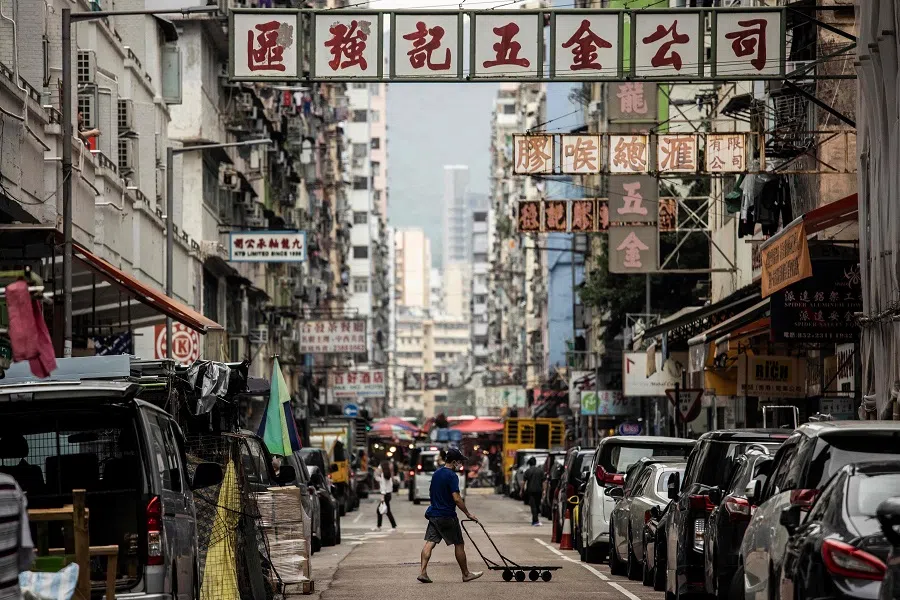
Instead, Hong Kong stood out as his oasis where both worlds could coexist.
He said, "Mainlanders may say that Hong Kong is very pro-West, but to me, Hong Kong is the place to be despite the cultural clashes. It has a balance of opinions between the East and West. It is the environment that can tolerate debate, which is hard to do in China and the US."
Ben believes the conflict of ideas is not a bad thing; in fact, that's why he chose Hong Kong. With its cosmopolitan nature, he also sees this global city as an ideal springboard for the ambitious.
"The HKSAR passport is much more convenient than a Chinese passport. There are many places we need visas for, but with an HKSAR passport, it'll be easier. The same goes for studying...it's easier to get a visa and stay with an HKSAR passport," he said.
Though unsympathetic to the 2019 citywide protest, Ben was still able to interact with pro-democracy locals on campus with whom he could discuss these issues.
When he eventually left Beijing to escape the lockdowns, he had little impressions of the city. He is ambivalent about the political changes and sees changes as the only constant.
"Changes are constant for this city. Every time someone in Hong Kong will say this place is doomed, but this sort of naysaying has been going on since the 1980s. The reality is that Hong Kong is always changing - we can't conclude that one place is dead because of one historical moment; it's just unfair."

Though unsympathetic to the 2019 citywide protest, Ben was still able to interact with pro-democracy locals on campus with whom he could discuss these issues. He said his upbringing stresses obedience to authority, while Hong Kong provides a better environment in this regard, being more liberal.
Claudia thinks the closer connection and cooperation between the two regions these days is the reason why some regard Hong Kong as becoming just another Chinese city. While she respects the regional differences, she believes integration is a natural phenomenon.
"Hong Kong, as a city with traditional Cantonese culture, is sure to be similar to many cities in Guangdong like Guangzhou. With more population inflow from the mainland, it's not hard to explain the growing use and influence of Mandarin," she said.
"The two regions are still very different regarding their history and systems. So sometimes it's normal that what works in the mainland may not work in Hong Kong, and vice versa."
Another reason for Hong Kong's popularity is the ongoing tension between China and the US - which was once a clear favourite until recently.
Cultural ties
Being a Cantonese speaker from Shenzhen, Claudia and her family are long exposed to Hong Kong culture and TVB dramas. She still finds the subtle differences - like mannerisms and norms - fascinating and is amazed by the city's multi-layered history. Comparatively, her hometown is bland with little "history, culture or architecture".
"There are many art scenes in Hong Kong which is great for a society to have artistic personalities, like art houses and shows, exhibitions and museums and so forth. It also connects with the world more closely and gets inspired," she said.
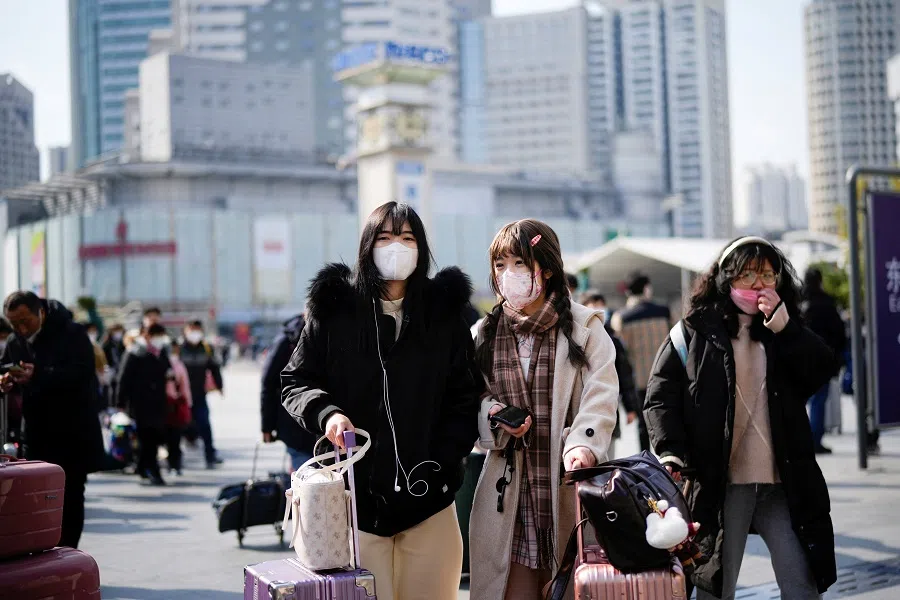
Another reason for Hong Kong's popularity is the ongoing tension between China and the US - which was once a clear favourite until recently.
Relations between the US and China have remained strained for the past years. The Trump administration imposed visa restrictions in May 2020 that effectively restricted Chinese students in the science, technology, engineering and mathematics (STEM) field. Some have also complained about anti-Asian hate in the US since the pandemic started.
These gestures have yet to woo the sojourners who have already chosen Hong Kong.
The Biden administration had been clear about its intentions to embrace Chinese students. 155,000 US visas have been issued to Chinese students and scholars since May 2021.
These gestures have yet to woo the sojourners who have already chosen Hong Kong.
"The international political environment is very volatile. That's something we can't control. It will directly affect the visa, the perception of whether you are a 'friend' or an 'enemy' to citizens in that country, and even the safety," said Claudia.
When asked whether to stay, Joyce believes she is content with her life in Hong Kong but is open to ideas. Even so, she prefers to stay close to Asia: "There's nowhere perfect. I've lived in the UK and the US, and I want a place with Asian exposure, which assures me. My time living in the US felt like something was missing. Asia is where I belong.
"Can I say I don't like China? Of course not. It's my homeland, after all; just like in Hong Kong, there are things I like and don't like. Whether to leave or not, it'll depend on what I need at that stage of life."
*Some names have been changed to protect respondents' privacy upon their request.
Related: A battle for the Hong Kong narrative: Why TVB is losing support among Hong Kongers | To leave or not to leave: The cry of Hong Kong's youth | Beijing's 'cleansing' of Hong Kong industries: Who will be the next target? | Hong Kongers moving to Taiwan: Temporary haven or permanent home? | Resignation of university presidents in Hong Kong: Can politics and education be kept separate?





